Ever thought about forgoing the shampoo bottle? It’s called the no-poo method, and people searching for shampoo alternatives consider it a debatable topic. Some claim it results in softer hair, while others say it’s a nightmare. What’s the real story?
It’s possible to forgo shampoo if you want to. Most commercial shampoos contain harsh chemicals that strip away our hair’s natural oils. Without these oils, our scalp has to work extra hard to replace what has been lost, causing our roots to become greasy, so we keep reaching for the shampoo.
Substituting chemical-filled formulas with natural shampoo alternatives may lead to a more relaxed scalp, less oily hair, and more lustrous locks.
This article will walk you through the best natural shampoo alternatives for different hair types and needs.
What’s The Deal With No Poo?
So, let’s start by discussing a different type of ‘poo’ – shampoo!
This cleansing product is used to rid your hair and scalp of dust, sweat, skin cells, and other undesirable materials. Most shampoos contain sulfates (or surfactants), foaming agents, pH modifiers, preservatives, and other ingredients.
These detergents in shampoo are present to remove sebum – an oil generated by sebaceous glands on the scalp and other body parts.
Sebum has the primary role of safeguarding and moisturizing your hair. As it repels water, detergents are essential for removing it. The no-poo method bypasses shampoo and other detergents, opting for shampoo alternatives instead.
How Does The No Poo Method Work?
Ditching and going for shampoo alternatives does not mean you should stop showering or cleansing your hair. You can still wash your locks, just not with shampoo. The no-poo method includes shampoo alternatives such as baking soda, coconut oil, or apple cider vinegar.
Don’t worry – your locks won’t start to smell bad. All it means is that you won’t have that familiar shampoo scent that you’ve gotten used to.
The shampoo alternatives could make your hair even healthier – detergents no longer remove the sebum and oils your hair needs, which may help with volume and texture.
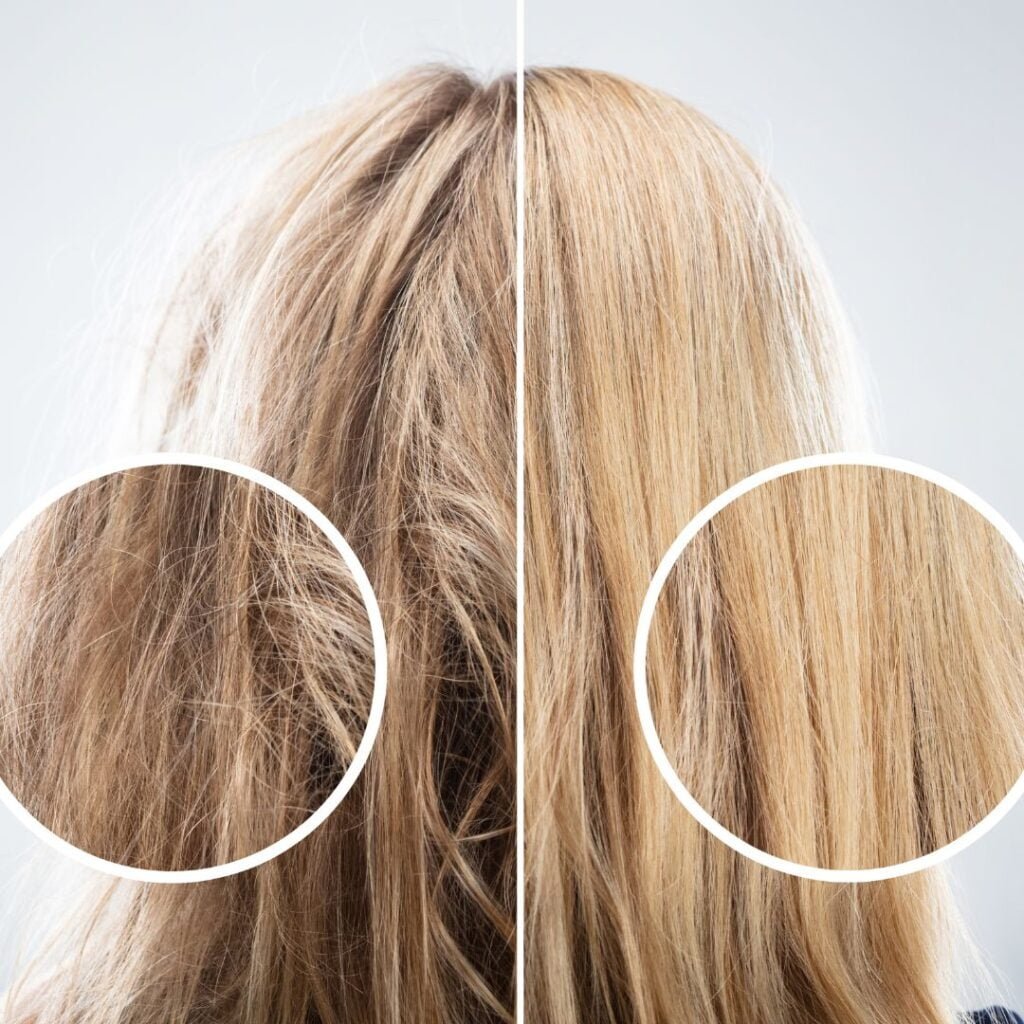
Reasons To Stop Qashing Your Hair With Shampoo
People are starting to move away from using traditional shampoos, and the world is taking notice of no-poo or shampoo alternatives.
These conventional shampoos usually have ingredients that could damage your hair, such as sulfates, parabens, formaldehyde, and alcohol, which have been known to cause scalp irritation, dermatitis, and worse.

In addition, there are several other reasons why you should abandon shampoo and go for shampoo alternatives.
Less dandruff
If you’re experiencing that uncomfortable itchiness on your scalp and seeing flakes of skin, this is most likely a result of mild seborrheic dermatitis. There are various explanations for why dandruff occurs, with a fungus being one of them.
To address this, many people use medicated shampoos that can, unfortunately, strip away the scalp’s natural oils, leading to further dryness.
Less oil buildup
Your sebaceous glands secrete more oil when they detect that your hair is drying. Cleansing your hair and scalp removes the oils, which can cause your sebaceous glands to become overactive.
Though it may not make sense, abstaining from shampooing can produce less oil and decrease the amount of oil buildup in the long run as your natural oils begin to balance.
No irritating or potentially harmful ingredients
All you folks with irritating skin issues, listen up. By ditching the shampoo, you won’t be exposed to any ingredients that could cause skin or scalp irritation.
And you don’t have to bother about the cause of weird allergies or breakouts.
Softer hair
When you wash your hair too often with shampoo, it can strip away its natural oils, leaving it dry. The no-poo method or shampoo alternatives helps preserve these oils, resulting in softer hair in the long run.
More volume
It’s only possible to achieve bouncy locks with moisture. As your hair soaks up its natural oils, your tresses will gradually become thicker and more voluminous.
Reaching that commercial shampoo level of hair tossing with shampoo alternatives will take some time, but hang in there.
Best Shampoo Alternatives

Every person’s locks are unique and may require different types of natural shampoo alternatives. Unfortunately, no scientific data indicates which is the top choice, so it’s just a matter of selecting the one you prefer.
Here are a few natural shampoo alternatives you can substitute for conventional shampoo.
1. Baking Soda
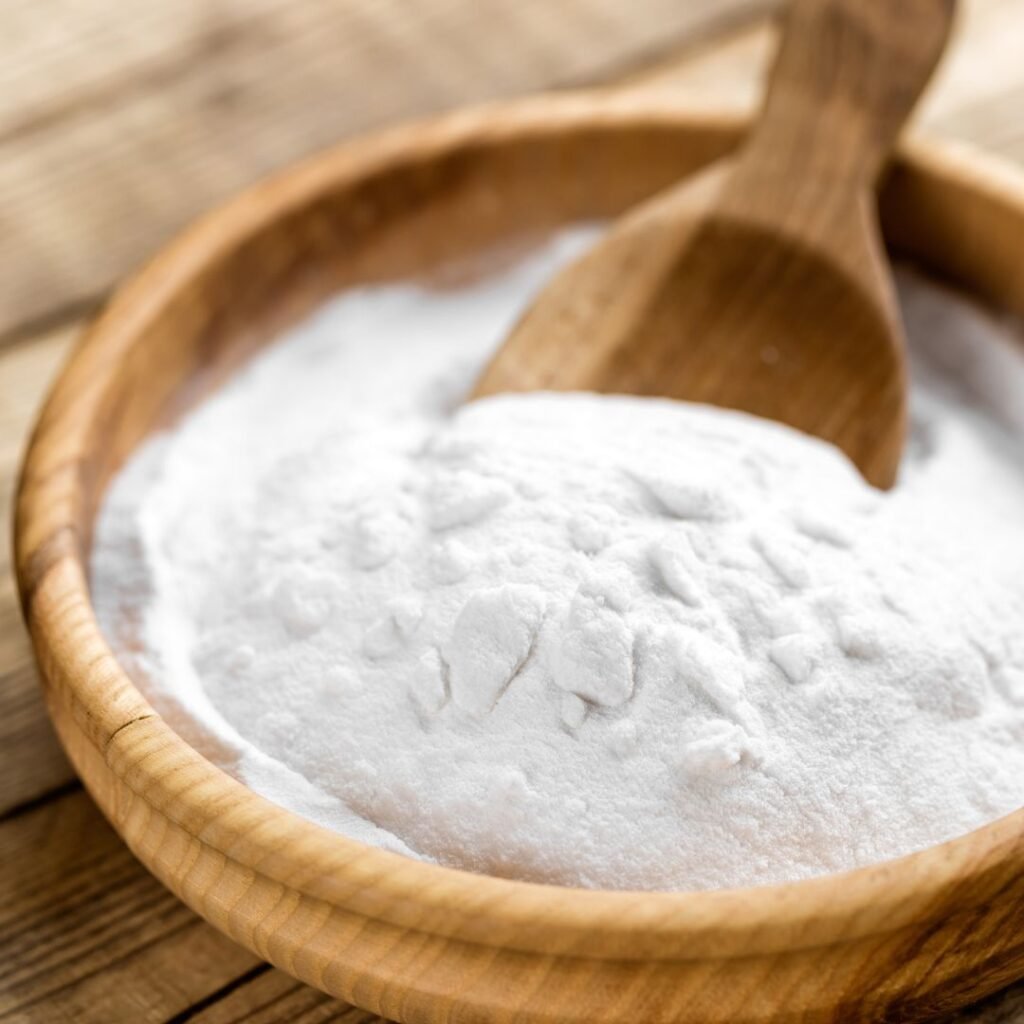
Initially, this suggestion may sound strange – using baking soda on your hair?
But Baking soda is a natural exfoliator that can help cleanse the scalp and remove dirt, oil, and the build-up of dead skin cells, reducing scaliness and itching. In other words, it provides a gentle detox.
Note that it can be too abrasive if used too often, so those with sensitive skin or dry hair should be careful. On the other hand, those with fine and limp hair may find that baking soda can provide body and texture.
How to use: For every 1 cup of water, add 1 tablespoon of baking soda. People with thick, curly hair may require a slightly more significant amount of soda than those with thin, dry hair.
Put the mixture into the bottle, then shake it to ensure the soda has completely dissolved. When your hair is wet, apply the solution to your scalp, starting at the roots, and massage it.
2. Apple cider vinegar
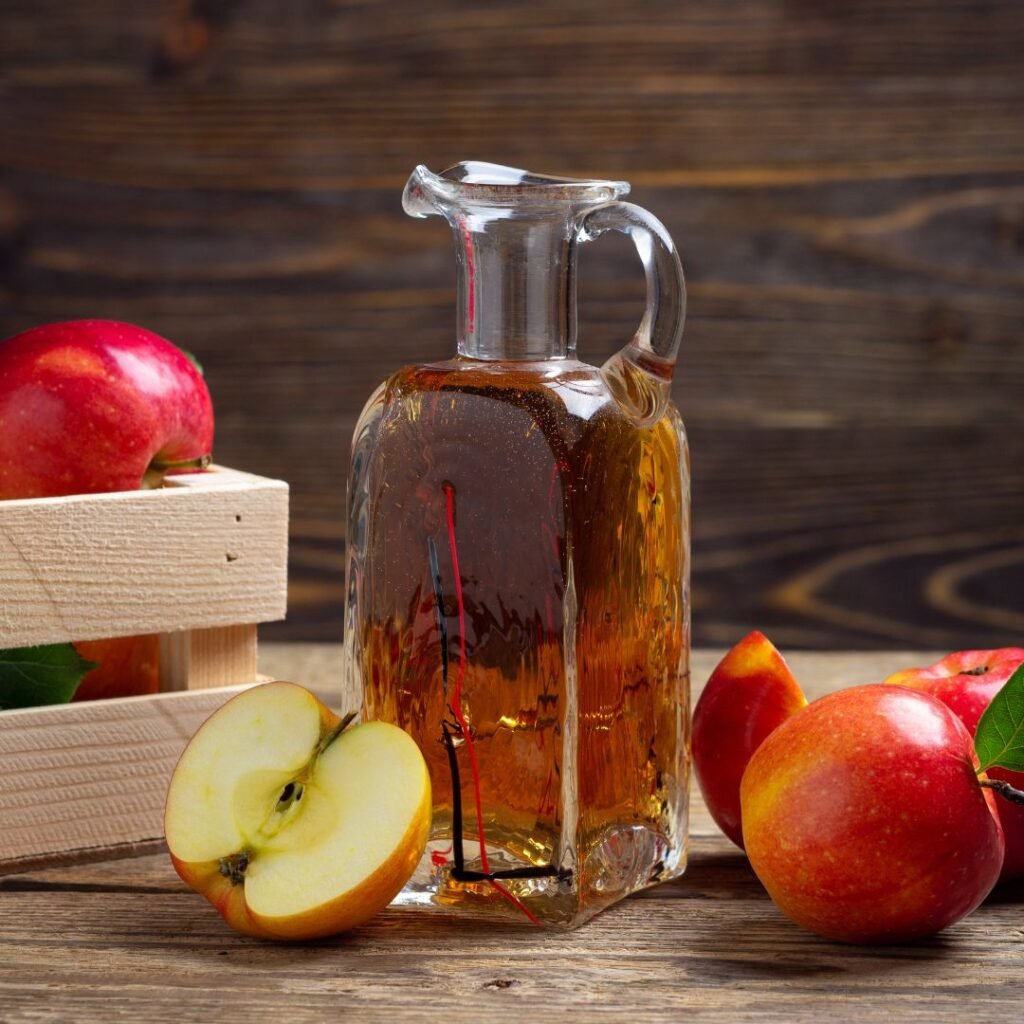
Apple cider vinegar’s acidity is excellent for controlling yeast growth, which can cause hair loss.
Additionally, it’s packed with essential minerals and vitamins that give your hair a beautiful shine, strength, and smoothness, equalize the pH level of the hair, and it can even preserve the color of your hair.
ACV is antifungal, so using it can help eliminate dandruff caused by a fungus, making it stand among the best shampoo alternatives.
How to use: Depending on your hair’s oiliness, combine two to four tablespoons of apple cider vinegar with 1.5 cups water.
Rub the mixture from the scalp to the tips, and use a spray bottle to distribute it evenly. Sit for five minutes before rinsing it out for the best results.
3. Egg
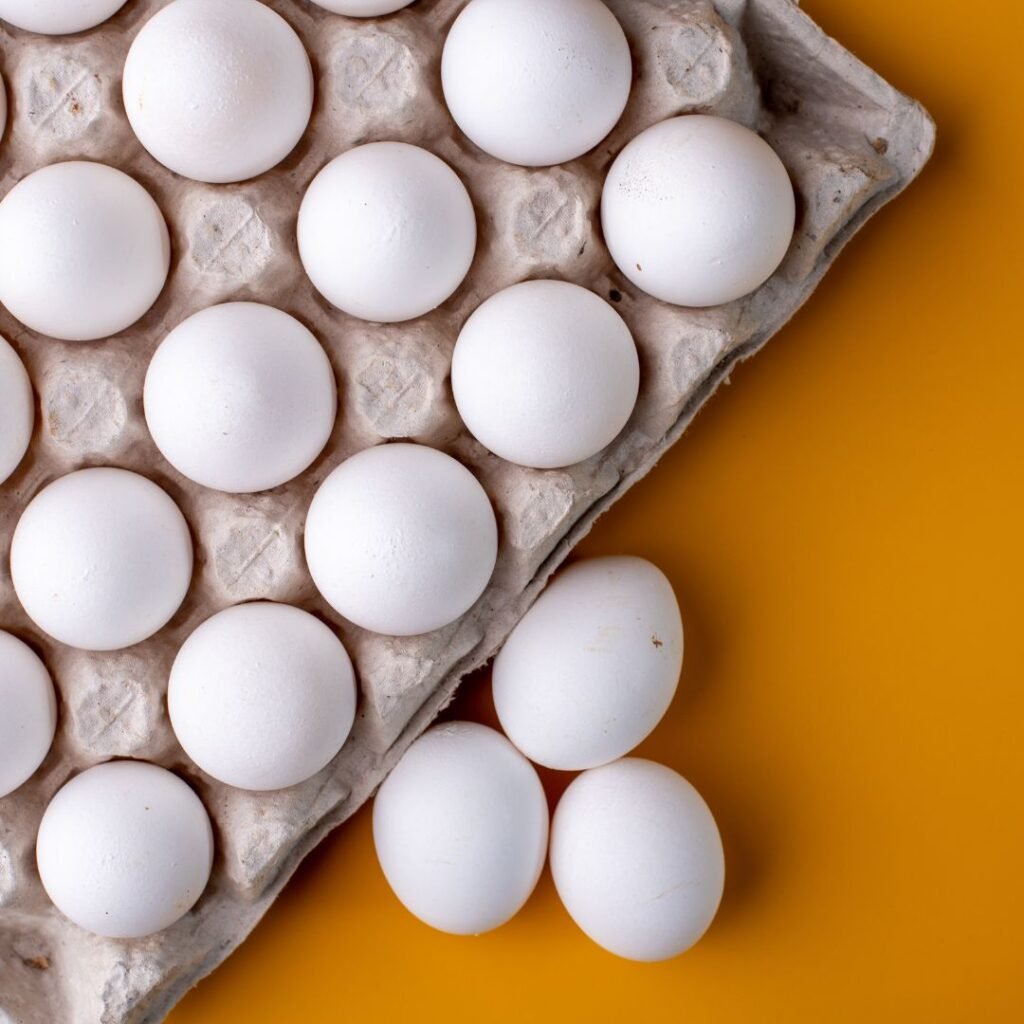
It might sound surprising, but eggs make incredible natural shampoo alternatives. Consisting of egg white and yolk, they can act as both a shampoo and conditioner.
The egg white serves as a surfactant, which helps to clear oil and dirt from the hair, while the egg yolk acts as a hydrating conditioner. However, those with oily hair should skip the yolk when using egg as a shampoo.
How to use: Crack an egg in a bottle, close it and give it a good shake. Step into the shower and pour the egg-filled bottle over your damp hair. Allow it to sit for 1-3 minutes before rinsing it with cool water.
4. Oat Milk
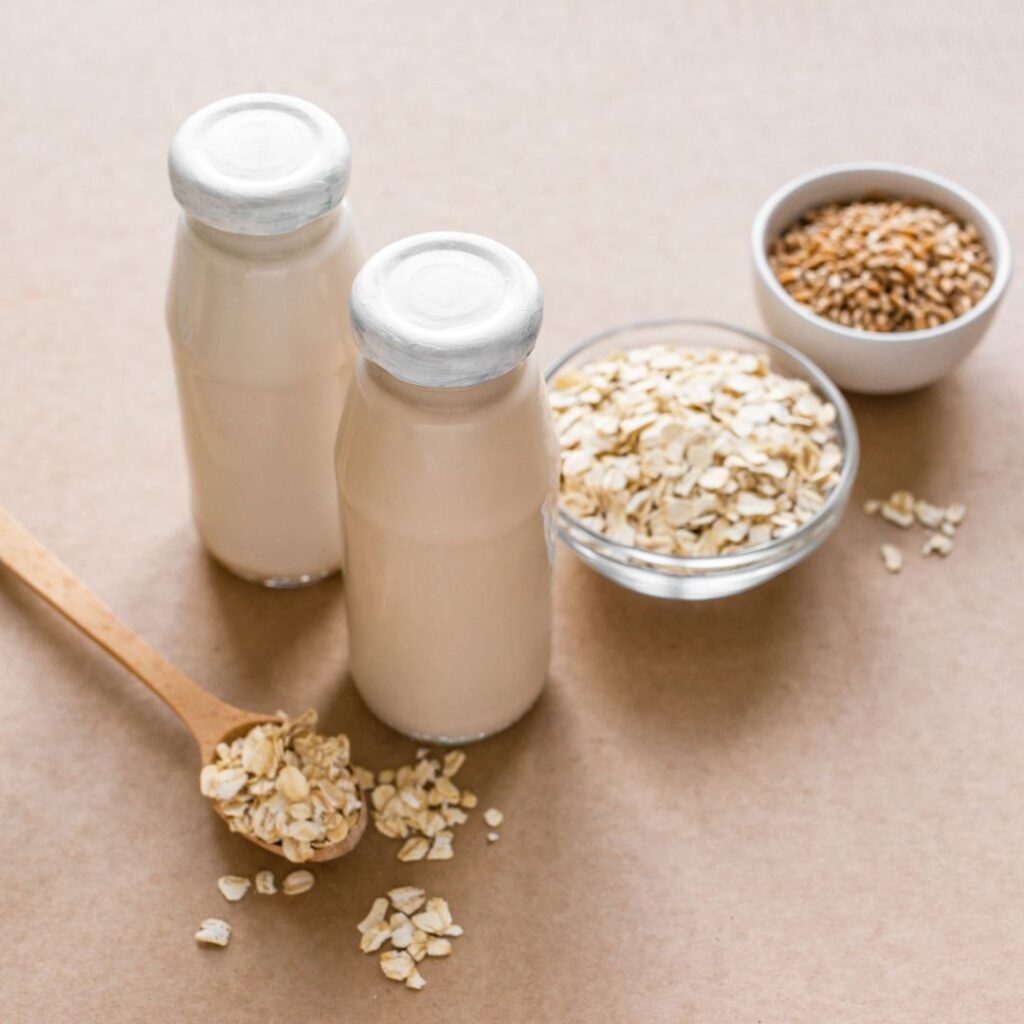
There is plenty of evidence to demonstrate the advantages of applying oats to the skin, and the same can be said for using oat milk in hair.
Oat milk is among the ideal shampoo alternatives for people with scalp-related issues, such as inflammation or dandruff, due to its highly effective anti-inflammatory components. Moreover, it contains proteins and fats that help reinforce the hairs and leave them glossy and silky.
How to use: Start by coating your roots with oat milk. Leave the oat milk on for 20-30 minutes before rinsing. Take two minutes to work the milk into your scalp, then spread it throughout the rest of your hair.
5. Water and Lemon Juice

People with dry hair can use lemon juice and water as shampoo alternatives. The citric acid has antimicrobial properties, which can help fight bacteria and dandruff, and its pH adjuster makes it a great cleanser.
Additionally, blondes can use the juice as a substitute for purple shampoo to keep their hue bright and reduce brassy tones.
How to use: Grab a tablespoon of lemon juice and add it to 2 cups water. Give the combination a good shake, and then pour it over your hair. Massage the solution into your hair for a couple of minutes, then rinse it.
6. Tea Tree Oil

Tea tree oil could be among the best natural shampoo alternatives to combat dandruff. If you have psoriasis, irritation, or seborrheic dermatitis on your scalp, consider switching to a shampoo that contains tea tree oil.
Moreover, for those parts of your scalp that need extra attention, this tea tree mix could be the perfect spot treatment to soothe your scalp.
How to use: For maximum scalp benefit, blend 4-5 drops of tea tree oil with water and give yourself a 3-5 minute scalp massage. To ensure safe usage, mix tea tree oil with a 1 to 10 ratio with other oils, such as coconut or almond oil.
7. Aloe Vera

Are you aware of the number of bacteria and fungi that inhabit your scalp?
Fortunately, aloe vera is brimming with anti-bacterial characteristics. It has the potential to break down dead skin cells, and its anti-inflammatory attributes make it a fantastic remedy for dandruff.
Additionally, it eliminates excessive oil from our hair, keeps our skin hydrated, reinforces and repairs our hair strands, and stimulates hair growth.
How to use: You can keep it simple and use plain aloe vera gel or add additional ingredients. Spread the gel over your hair, starting from the roots to the ends.
Once that’s done, use a wide-toothed comb to brush it through. Let the mask sit for around 30 minutes, then rinse it.
8. Tea

Believe it or not, the next time you’re brewing a cup of tea, consider making one for your hair, as it is one of the best shampoo alternatives.
The caffeine in tea has a positive effect on blood circulation, hydration of the skin, and oxygen delivery to the body – all of which can help to stimulate hair growth and reduce hair loss.
Furthermore, different teas can also be used as a gentle cleanser for other hair types – for instance, chamomile is best for blondes, while rosemary is better for darker hair.
How to use: Make a cup of tea and allow it to chill before pouring it over your scalp and giving yourself a gentle massage.
Alternatively, you can get creative and add a few drops of your preferred essential oil and a spoonful of baking soda to the tea for an extra-deep cleanse.
9. Conditioner Only (Co-Washing)

Co-washing can be a practical component of the No Poo Method for those with curls. This involves washing your locks with a conditioner with no parabens, sulfates, or silicones, as opposed to shampoo.
Curly-haired people find conditioner among the best shampoo alternatives, as they require extra moisture from oil and water compared to those with straight hair.
How to use: Wash your locks twice with conditioner – the first time to remove any dirt and grease from your scalp, and the second time to clean the ends of your hair and leave the conditioner in for bouncy, soft curls. Remember to rinse properly.
10. Rhassoul Clay

Rhassoul clay is packed with beneficial minerals like magnesium, potassium, and calcium that can help repair damaged hair. This clay can remove excess sebum and dirt from the scalp and hair shafts.
How to use: To make a homemade hair mask, stir two heaping spoonfuls of rhassoul clay with enough hot water to form a paste. Allow it to chill before applying it to your strands. Allow it to stay on for 2-3 minutes, then rinse it thoroughly.
11. Coconut Milk + Olive Oil Mix
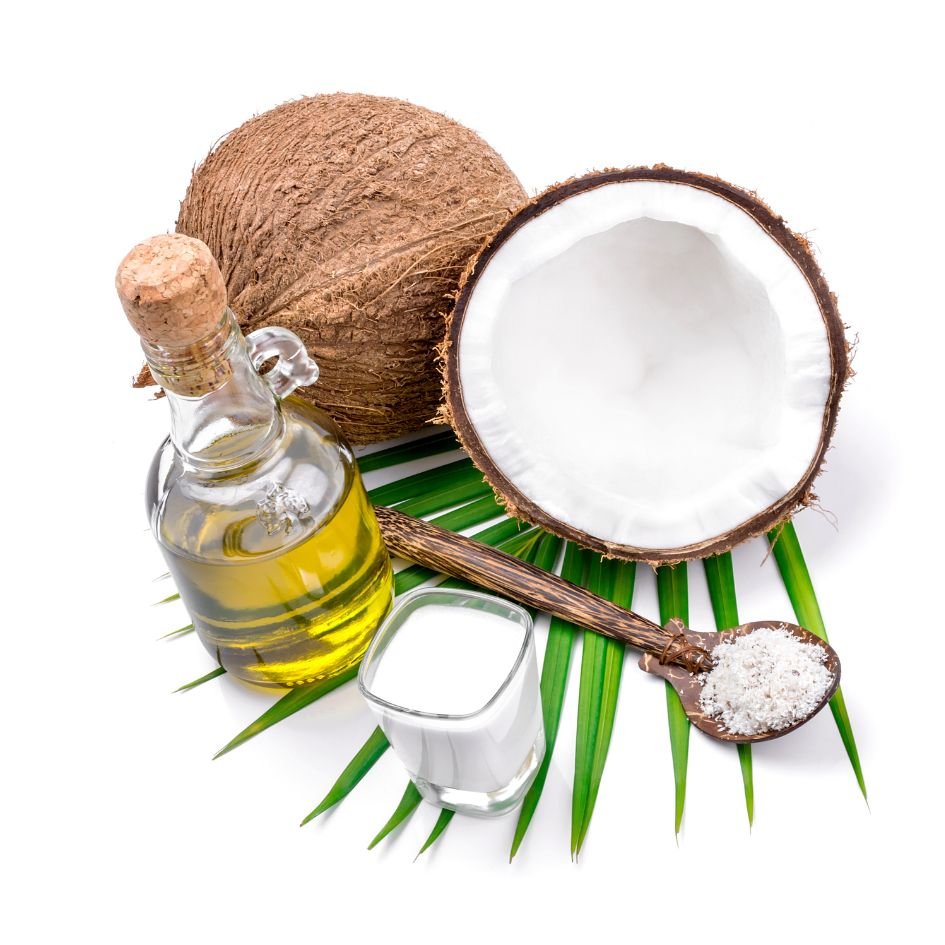
It’s common knowledge that coconut oil is an effective mask for the hair, but coconut milk also makes a great shampoo.
Olive oil provides a lustrous sheen to the outside layers of the hair, proving to be especially useful for processed, thick, dry hair and split ends.
The mixture of coconut milk and olive oil stands among the best shampoo alternatives to help in keeping the scalp and hair moisturized, soft, and free from dirt.
How to use: To make your shampoo, combine a can of coconut milk, 3/4 cup of Castile soap, 1 teaspoon of olive oil, and coconut oil. Use this mixture instead of your typical shampoo.
Wrapping Up
The shampoo helps eliminate dirt, sweat, dead skin cells, and other unappealing substances. Most shampoo products contain detergents, foaming agents, pH balancers, preservatives, and other additives.
Trying out natural shampoo alternatives in place of chemical-filled formulas might relieve tender scalps, reduce the overproduction of oil, and bring back the luster of dull hair.
If you want to go the ‘no poo’ way, quitting is alright if you’re not content with the outcome. However, if you use the above shampoo alternatives for 4 to 6 weeks, your locks should level out, and you’ll notice those results no-poo fans rave about.

Thanks a lot for this beautiful article. I use coconut oil regularly as a hair mask, which works for me much better than regular masks. I know nothing about shampoo alternatives, so I found your article so helpful. I will definitely try this recipe with coconut milk and olive oil.